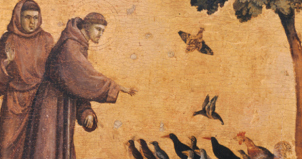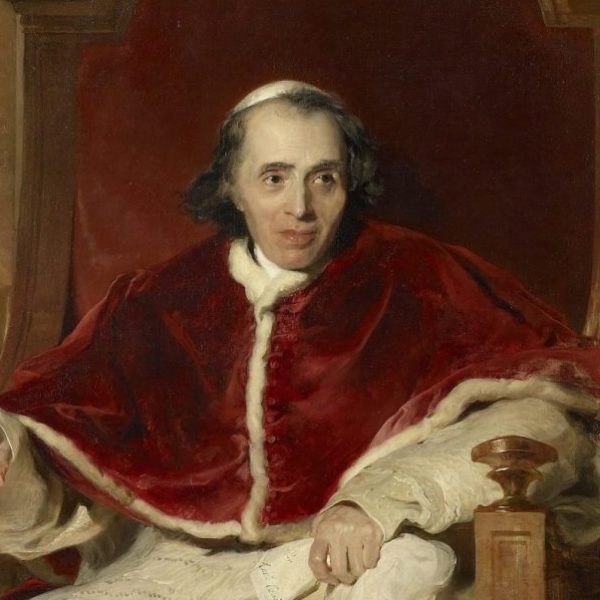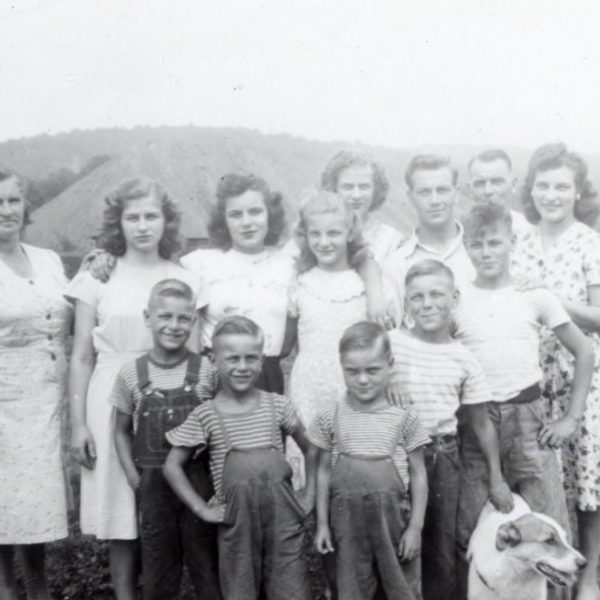Celebrating St. Francis of Assisi through the Art of Biography
Today, October 4, is the feast day of St. Francis of Assisi, the Catholic Church’s patron saint of animals and the environment. On this special day, many people celebrate by taking their pets to churches for a special blessing ceremony. Here at Yale Press, we’re marking the occasion a little differently, with the release of André Vauchez’s Francis of Assisi: The Life and Afterlife of a Medieval Saint, newly translated into English by Michael F. Cusato. Vauchez’s book meticulously examines the saint’s life and the different ways he has been represented throughout the centuries.
 But do we really need another account of this famous saint? Vauchez opens his book acknowledging the apparent redundancy right away: “…he seems so well known, so familiar to us. Who has not heard of this saint who loved poverty preached to the birds, and was the first to bear the stigmata?” Indeed, the efforts to throw light on Francis’ life have been numerous, from books, to essays, to films. Vauchez, however, takes issue with these representations for “transforming into a singular and straightforward destiny a life which, like that of every human being, is marked by uncertainty and discontinuities.” To Vauchez, most authors have failed to refer closely enough to historical sources, or to interpret them fairly.
But do we really need another account of this famous saint? Vauchez opens his book acknowledging the apparent redundancy right away: “…he seems so well known, so familiar to us. Who has not heard of this saint who loved poverty preached to the birds, and was the first to bear the stigmata?” Indeed, the efforts to throw light on Francis’ life have been numerous, from books, to essays, to films. Vauchez, however, takes issue with these representations for “transforming into a singular and straightforward destiny a life which, like that of every human being, is marked by uncertainty and discontinuities.” To Vauchez, most authors have failed to refer closely enough to historical sources, or to interpret them fairly.
Additionally, many authors believe that the saint’s rich personality gives rise to a wide variety of possible “readings.” This has led to several transformations in our understanding of Francis over the years:
“For centuries, we have celebrated him as the ascetic and the stigmatic, the founder of a great religious order and the paragon of Catholic orthodoxy. Then, at the end of the nineteenth century, he was considered a romantic hero, upholding an evangelical and mystical Christianity which had been destroyed by the ecclesiastical institution. In our own day, we have placed more emphasis on the image of the defender of the poor, the promoter of peace between individuals and religions, the man in love with nature, the protector and patron of ecology, or even the ecumenical saint whom Protestants, Orthodox Catholics, and even non-Christians can relate to.”
Granted, it may be a stretch to claim that we could ever know the man as he “really” was —but does this mean the historian should relinquish all claims to objectivity? Vauchez thinks not, arguing that “the search for a certain methodological rigor” should be attempted all the same. The subjectivity inherent in the process “does not prevent [the historian] from doing his work honestly … while taking his distances vis-à-vis all legends, golden or black, and while approaching the study of the broadest possible documentation with the maximum of objectivity.”
On this day of remembrance, Vauchez’s book not only encourages us to pay tribute to the memory of St. Francis of Assisi, but also reminds us to consider how memory is even constructed at all.





What a great birthday present to learn of this book. A grandmother taught me about St. Francis and I have long considered him “my” patron saint since my birthday is 10/4, and his works have made a strong impression on my life. My enjoyment of biographies makes this a double gift…I look forward to reading Vauchez’s account and learning more!
Awesome